Introduction
On December 7, 2023, Marc Miller, the Canadian Minister of Immigration, Refugees, and Citizenship, announced the increase in the cost of living financial requirement for international students, which will become effective January 1, 2024. The move, according to the government is to ensure that international students planning to study in Canada are financially capable of bearing the cost of living.
He added that this threshold will be subjected to yearly adjustment depending on the LICO or low-income cut-off updates from Statistics Canada. For those unaware, LICO serves as a yardstick for the minimum necessary income in Canada to ensure that an individual does not spend a higher-than-average portion of the earnings on necessities.
Canada has been a top preferred destination for international students over the years due to its high-quality educational institutions, welcoming and diverse societal fabric, and the work and permanent immigration opportunities that are available after graduation.
As we discuss the annual influx of international students arriving in Canada, IRCC reported in its departmental results report for March 2023 that the number of international students arriving in Canada exceeded 806,200 valid study permits at the end of 2022.
Further, the department received around 262,000 applications between January and April 2023, showcasing and again proving its status as an increasingly popular destination for global education.
However, although international students have been the life of the Canadian campuses and significant contributors to nationwide innovation, they have faced issues like finding sufficient housing during their studies in Canada.
What is the Proof of Funds Requirement?
International students applying for Canadian study visas must demonstrate financial preparedness by showing a minimum amount of funds necessary to cover their living expenses in Canada, tuition, and travel costs. The endorsement can be done by furnishing documents like bank statements, Guaranteed Investment Certificates, letter of financial support from a sponsor or scholarship or award letter.
The threshold for the Cost of Living Financial Requirement has been set at $20,635, representing 75% of the Low-income cut-off (LICO), for a single applicant to be applicable from January 1, 2024. The previous threshold was $10,000, which has remained unchanged since the early 2000s.
Changes in the Cost of Living Financial Requirement
| Number of Family Members | Amount of Funds Required (Before Jan 1, 2024) (CAN$) | Amount of Funds Required (After Jan 1, 2024) (CAN$) |
| 1 | 10,000 | 20,635 |
| 2 | 14,000 | 25,690 |
| 3 | 17,000 | 31,583 |
| 4 | 20,000 | 38,346 |
| 5 | 23,000 | 43,492 |
| 6 | 26,000 | 49,051 |
| 7 | 29,000 | 54,611 |
For example, if a student with two family members plans to relocate to a Canadian province (excluding Quebec) for a year, the financial requirements, based on the table above, would be as follows:
- As the primary applicant, the student would need to demonstrate funds amounting to $20,635 for the year to cover living expenses.
- The first accompanying family member requires an additional $5,055 to meet the living expenses for a year.
- The second family member would need $5,893 for their living expenses during the one-year stay.
Total Funds Required: $31,583
Why Canada Still Remains the Top Choice for International Students Over the UK and USA?

Despite these recent concerns related to the increased cost of living for international students by Canadian authorities, Canada will continue to be a desirable destination for overseas scholars. The country provides a unique blend of academic achievement, including quality education, better research and employment opportunities, and improved lifestyle.
Canada has world-class institutions that rank among the top global universities. Among them are the University of British Columbia, ranked 45th in QS world rankings, the University of Ottawa, one of Canada’s oldest universities, and the University of Alberta, which ranks 7th in QS rankings.
Moreover, Canada provides pensionable benefits to overseas graduates who stay, showing its commitment to their well-being. Thus, despite increased living costs, studying in Canada is cheaper than in the UK or the US. These among other changes introduced, show the country’s dedication to educational integrity and a successful learning experience. The opportunity to become a permanent resident of Canada post studies strengthens Canada’s status as a desirable study-abroad destination.
Conclusion
The increase in proof of funds requirement has been met with mixed reactions from the international student community and other essential stakeholders. Most have relayed their concern about how this increase may impact the inflow of international students, where international education accounts for over $22 billion of the nation’s economic activities.
If you’re a current or prospective international student looking to study in Canada and want to strategically position and strengthen your application in light of these and other IRCC changes, let our experienced team of immigration consultants guide you. We specialize in dealing with complex immigration issues, offering tailored solutions to ensure a smooth transition to Canadian student life. Contact us today for personalized assistance and take the first step towards a successful academic future in Canada.
The Team at Northern Connections Canada Immigration



